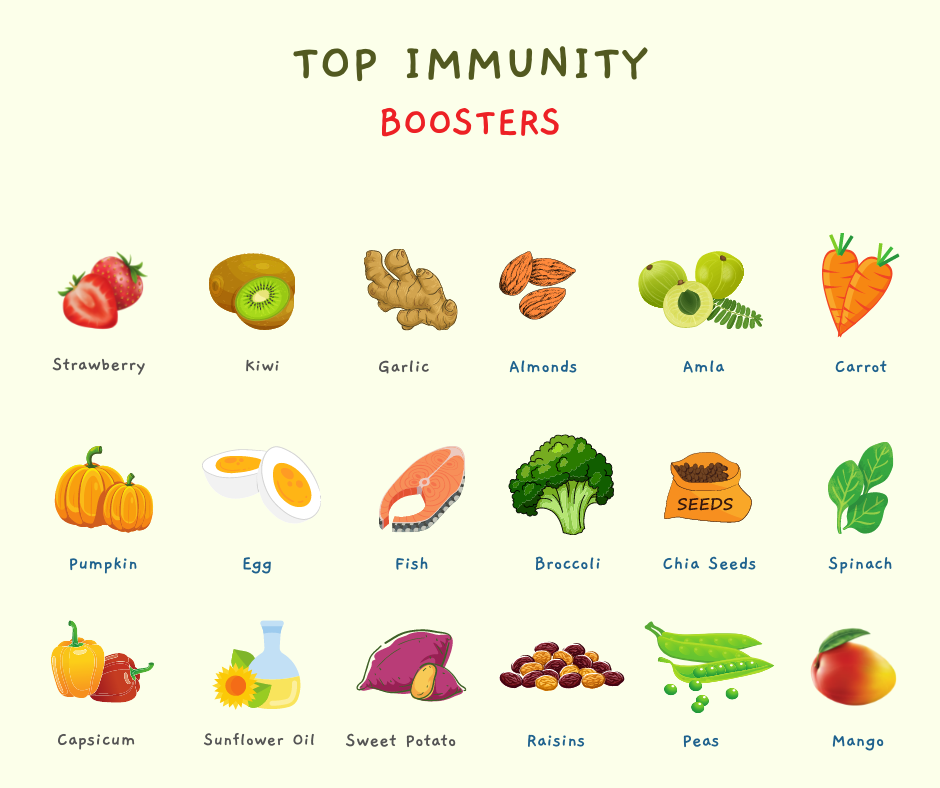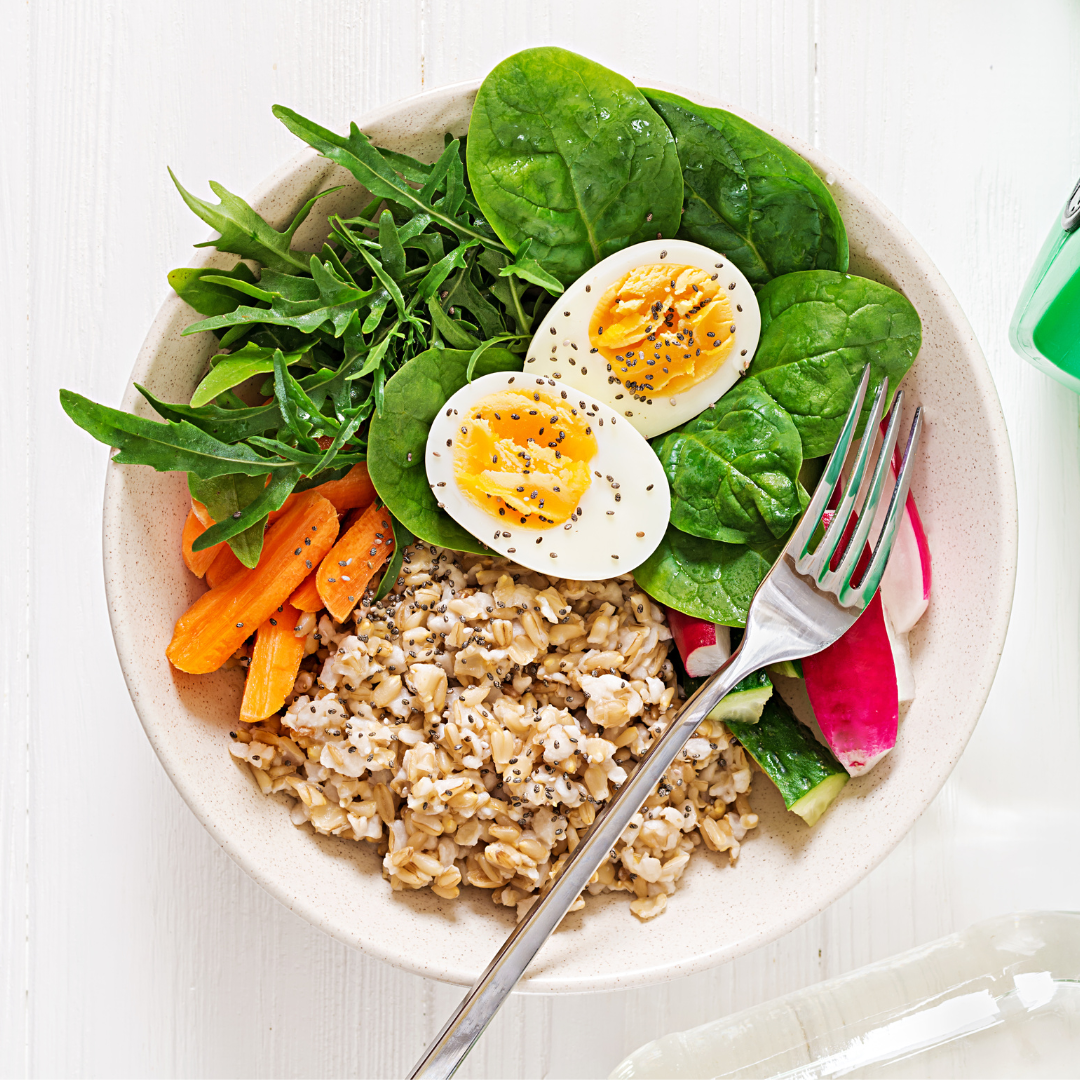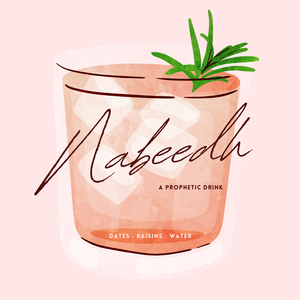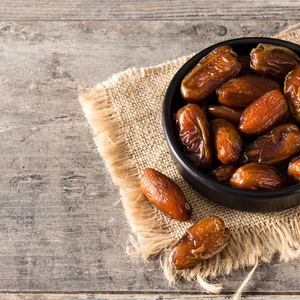So efficient and hushed are our brains in their day-to-day operations that we tend to miss out on what an extraordinary and blissful achievement it is to feel healthy and emotionally well. Boosting your immunity is one of the best things you can do right now to prevent yourself from the dangers of COVID-19. Think of it like training for a battle and preparing your body to fight against viruses, bacteria, and toxins. Adopting healthy living habits can help to improve your immunity for a lifetime.
📜 What Can I Do To Boost My Immune System?
Strengthening the immune system can be simple, easy, and effective if you modify your lifestyle to include healthy eating habits and proper hygiene.
- Eat a diet high in fruits and vegetables.
- Exercise regularly.
- Maintain a healthy weight.
- Get adequate sleep.
- Take steps to avoid infection, such as washing your hands frequently and cooking meats thoroughly.
- Try to minimize stress.
🥕 Eat Well To Be Well
Do you consume nutrients that are required by your body? If not then it’s time for you to follow a balanced diet. Also, your body needs an adequate amount of vitamins - A, C, D, and E, all of which are essential to fight infections.
What Should I Eat?
1. Include Fresh and unprocessed foods
- Try to include a variety of colored fruits and vegetables into your daily meals and snacks. At least try to consume 400g of fruits and vegetables per day (exclude potatoes, sweet potatoes, and other starchy roots)
- 180 g of grains and 160g of meat ( red meat 1-2 times/week and poultry 2-3 times/week)
Note: Do not overcook vegetables as this can lead to loss of important vitamins.
2. Reduce or minimise sugar and salt intake
Much of salt and sugar is added while cooking or preparing foods which contribute to many health conditions. Therefore,
- Limit the intake of sugars to about 6 teaspoons per day
- Limit the salt intake to about 1 teaspoon per day. Salt should be iodised.
Note: Avoid free sugars which are present in foods or drinks commercially available and limit the consumption of salty snacks or high sodium sauces on table.
3. Include moderate amounts of fat and oil
🚰 Hydrate! Don't "die-drate"
Why is hydration important? Fever is associated with excessive loss of fluids and increased metabolism which can lead to dehydration and increased nutritional requirements. Staying hydrated will help to flush out the toxins from the body. This does not have to be only water you can include juices made of citrus fruits and coconut water.

🥭 Immunity Boosters
Feeding your body certain foods may help keep your immune system strong. It's always better when it's natural and the best way to get your vitamins and minerals is from your food rather than popping pills into your body. Here is a list of essential foods that can help you boost your immune system.
🌿 Herbs and Spices
Spices and herbs prove to be potential antiviral preventives and immunity boosters during covid -19. Some of which are - Tulsi leaves, neem leaves, turmeric, cinnamon, clove, black pepper, basil, fenugreek/methi seeds, garlic, ginger [ref: ncbi - phytotherapy research,2021]
Benefits
Tulsi leaves - are natural immunity boosters. It has antibacterial, antiviral and anti fungal properties. This herb is recommended as a treatment for a range of conditions like anxiety, cough, asthma, diarrhoea, fever, dysentery, arthritis, indigestion, vomiting, gastric, skin diseases and malaria. [Ref: Journal of Ayurveda and integrative medicine,2014]
Cinnamon - a rich source of antioxidants. It has antibacterial and anti fungal and anti inflammatory, anti cancerous, anti diabetic , anti microbial properties. Also has cholesterol and lipid lowering effects. [Ref: Evidence based complementary and alternative medicine,2014]
Healthy food for a Wealthy mood! Boost your immunity with these recipes
- Herbal concoction 🌱
Sipping some warm brew with herbs and spices can help you strengthen your internal system. This drink can boost your lung health.
Ingredients
5 tulsi leaves, 1 tbsp fenugreek seeds, 1/2 inch grated ginger, 2 cloves garlic, 1/2 inch cinnamon stick and one squeezed lemon.
Preparation
In a pan of 2 litres of water add the above ingredients and boil it for a few minutes. Turn off the flame and let it cool. Strain and add into a glass bottle. Consume 250ml twice a day with freshly squeezed lemon. Best sipped when this is warm.
2. Carrot ginger soup 🥕
Soup is an ultimate comfort food and a perfect way for busting out stress. You can pair this with some crusty bread or side it to your roasted chicken. This soup contains immune boosting ingredients like carrot, ginger and turmeric.
Ingredients
1 small onion, 1 carrot, 1/2 inch grated ginger, 1/2 tsp turmeric powder, ½ tsp black pepper, some mint or thyme leaves.
Preparation
Add some olive oil and saute onions in a pan until soft. Next add ginger and turmeric saute for 2 minutes. Add chopped carrots and season this with salt. Mix well and saute this for 2 minutes. Add a cup of water and close the lid of the pan and simmer this at low-medium flame till carrots are tender. Switch off the flame and let the mixture cool. Add this to a blender to form a smooth puree. Now add this puree into the pan, add ½ cup water, black pepper, and warm this on low flame. Garnish this with mint or thyme leaves.
3. Pumpkin Energy Bites 🎃
Try these superfood energy bites which are packed with healthy fats, protein, vitamins and minerals. A perfect snack to boost your immune system.
Ingredients
½ cup pumpkin grated or chopped, 2-3 dates, 1tbsp safflower or olive oil, 3-4 cashews, 1tbsp pumpkin seeds, ½ tbsp flax seeds, 2 tsp chia seeds, 1tsp grated ginger.
Preparation
Place dates in a small bowl with warm water, allow this to soak for a few minutes and remove the pits. Next in the food processor combine all the above dry ingredients and pulse it together till smooth. Add oil in between. Now remove this and use your hands to form small balls. Enjoy right away or refrigerate for 30minutes.
4. Sweet potato nachos 🍠
Craving nachos but want a healthier option? These nachos are loaded with nutrients and can serve as a perfect healthy snack to satisfy your cravings.
Ingredients
1 large sweet potato, 1 tbsp of olive oil, 1 tsp chilli powder, 1 tsp garlic powder
Toppings ( these are entirely your choice )
¼ cup of cheese, ½ tomato and onions diced, ¼ cup capsicum diced, ¼ cup chickpeas, ¼ cup boiled and shredded chicken/ mushrooms, ½ tsp sesame seeds, ½ tsp melon/pumpkin/flax seeds
Preparation
Preheat your oven to 180 degrees. Slice the sweet potato into ¼ inch using a knife or slicer. In a bowl toss these sweet potatoes in olive oil and spices. In a baking tray on a baking sheet place these slices in a single layer and bake for 15 minutes. Flip over, add the toppings and bake again for 6 minutes or until golden and crisp.
📈 Food Chart To Help Choose Your Vitamins and Minerals Intake
Ayesha Baig is a Nutritionist at Arriqaaq Health who has completed her Masters in Food and Nutrition. Her focus is on creating awareness about healthy eating and lifestyle changes along with personalised meal plans to help the community.
Like our content? Subscribe Peas!




